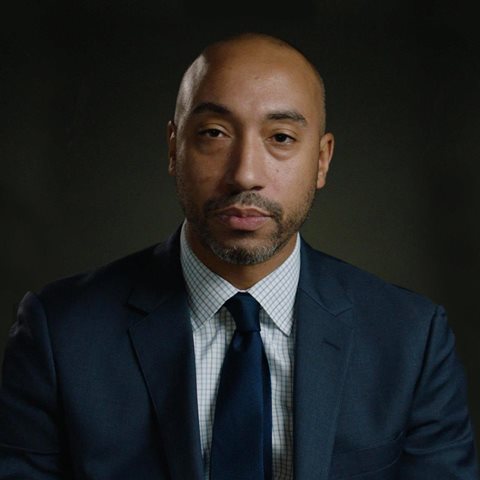What a week. The World Economic Forum (WEF) Annual Meeting is always a kind of Rorschach test of the world’s hopes and concerns. This year’s weeklong meeting overdelivered on both counts. Let’s start with the tensions: Wars in Ukraine and the Middle East, new geopolitical dustups, surprising new policy proposals, and—late in the week—a new wild card in the race for AI leadership had delegates buzzing. Long-standing problems like demographic change and muted progress in the energy transition did not lighten the mood. On the other hand, attendees were equally energized by the potential for resolution to critical conflicts and an enormous range of new ideas on view that could accelerate growth, health, innovation, sustainability, and inclusiveness.
On balance, we’d say the edge goes to the optimists. We spoke with hundreds of business leaders, government officials, and leading thinkers; our conversations focused heavily on how to find real, practical strategies for productivity, growth, and resilience in an uncertain world. Here are the seven themes that we heard consistently throughout the week:
- Keeping tabs on changes in the United States. The priorities of the new US administration were the talk of Davos, with President Trump speaking to WEF delegates in a dedicated session. CEOs are paying close attention to the possibility of new tariffs and trade wars, with many seeking to understand the implications for their industries, supply lines, customers, and investments. Additionally, there’s an expectation that, with US regulators more inclined to approve mergers, a wave of dealmaking and growth may be forming. Across it all, CEOs talked about how to get on the front foot and go on offense. Conversations at Davos highlighted the growing challenges to global cooperation, but there are paths to bolster this. In our discussions, we emphasized how companies can build a geopolitical strategy around ten value drivers. Asian companies have a particular opportunity: As their influence grows, the region could become the engine of global trade due to its technological prowess, industrial strength, and sheer size, coupled with its increasing domestic savings and investment potential.
- Harnessing gen AI: Call my agent. Generative AI represents a $4.4 trillion opportunity and has the potential to reimagine entire enterprises, yet only 11 percent of gen AI pilots actually scale. To capture the full potential of this new technology, executives need to be willing to make structural changes such as rewiring the organization and modernizing the technology stack. Executives focused on two points this week. First, the cost of software development is approaching zero. With the introduction of agentic AI promising a new wave of productivity and innovation—in software development and other functions—it’s important that business leaders lay the groundwork in their organizations to be able to effectively adopt the technologies. Second, the sudden appearance of DeepSeek threw off many companies’ previous calculations about the cost of compute and energy consumption; the wheels are still turning on these questions.
- Catalyzing European growth and competitiveness. We’ve entered an era that makes competitiveness more urgent and challenging for Europe. Following the reports by Letta and Draghi and the EU Competitiveness Compass, businesses and governments are increasingly aligned on the need for more speed, scale, and simplicity to unleash investment.1 All are concerned about the widening gap with the United States. To thrive in this era, Europe needs a strategic framework and integrated agenda for competitiveness, with business leaders and policymakers working hand in hand toward ambitious new goals. Two ideas came up repeatedly: a 28th regime for the European Union—a cross-country set of greenfield tax policies, labor rules, and regulatory standards—and the collaboration of businesses and policymakers to develop business cases for specific investment needs and lighthouse initiatives and outline the changes needed in EU policies for the cases to add up.
- Creating 21st-century leaders today. A new set of skills is required to be effective in today’s tumultuous world, where leaders are constantly grappling with a range of near-existential issues. We spoke with Andy Jassy, Jane Fraser, and Robert Maersk Uggla about this at our annual CEO Breakfast. Taking a service leadership approach that focuses on empowering your teams to be successful, embracing levity and humor, having a continuous learning mindset, and building grit and resilience are just a few of the attributes needed to excel as a 21st-century leader. Organizations should treat leadership development as a core capability to develop a cadre of talented leaders to withstand future disruption. As cycle times speed up, truly resilient companies will need dynamic leaders with new traits and skill sets.
- Advancing the energy transition: Beyond the “why” to the “how.” The wildfires in California offered a vivid reminder that climate change remains a potent force. CEOs told us that meaningful momentum toward net zero is building. One hopeful sign: Plasma simulations of nuclear fusion suggest that the long-hoped-for technology may yet pan out. Still, the world is not transitioning quickly enough to achieve the goals that societies, governments, and the private sector envision. Executives are focused on the need to run two energy systems in parallel: fossil fuels and clean energy. It’s a difficult balance, made more complex by the need to address multiple imperatives, including reducing emissions, ensuring affordability of energy and materials, providing reliable and secure energy systems, and strengthening competitiveness for companies and countries.
- Accelerating progress and innovation in health. On the heels of a report that we published with WEF in 2024 that sheds light on the substantial health inequities women face globally, there was significant conversation this year on how health conditions could be improved across the board. This year’s report on the topic provides a blueprint for developing a global view of women’s health and raises clear opportunities to improve the lives of women today and for future generations. Additionally, we continue to explore how rising burnout rates and shifting work trends are affecting the health of the workforce and illuminating the urgent need for workplaces to prioritize employee well-being.
- Harnessing the cross-industry potential of space as a growth engine. Space is poised to be a $1.8 trillion opportunity for global economic growth. As the space economy expands, it could create value for multiple industries and enable new ways of working far beyond the aerospace sector—from supply chain operations to global communications to worldwide access to education and more. What we heard at Davos: If space isn’t part of your strategy, it needs to be.
WEF’s theme for this year’s meeting was “collaboration in the intelligent age.” We saw signs everywhere of new forms of collaboration and new smart solutions to the world’s enduring problems. Watch the video for more insights into our conversations with chief executives.






